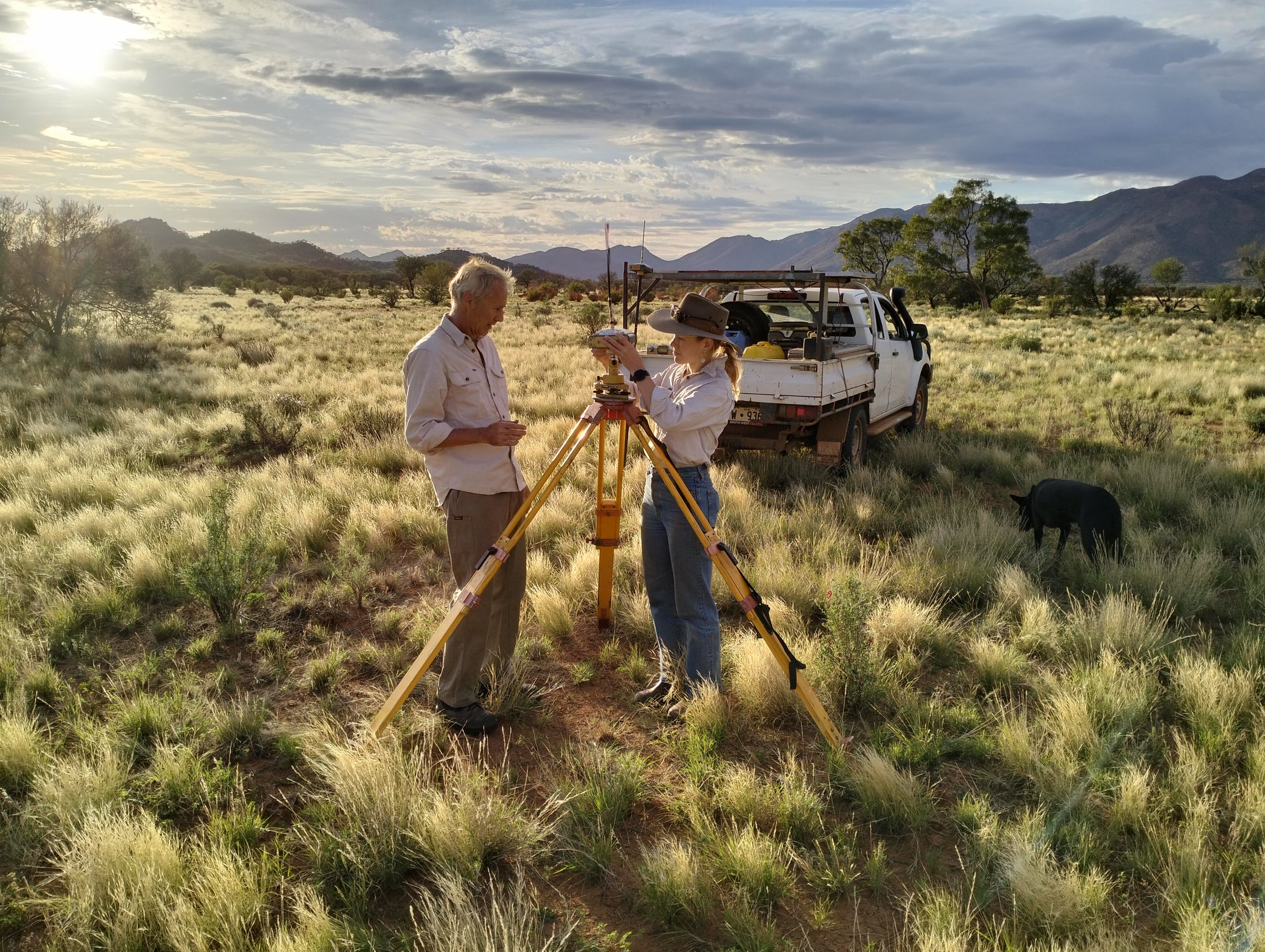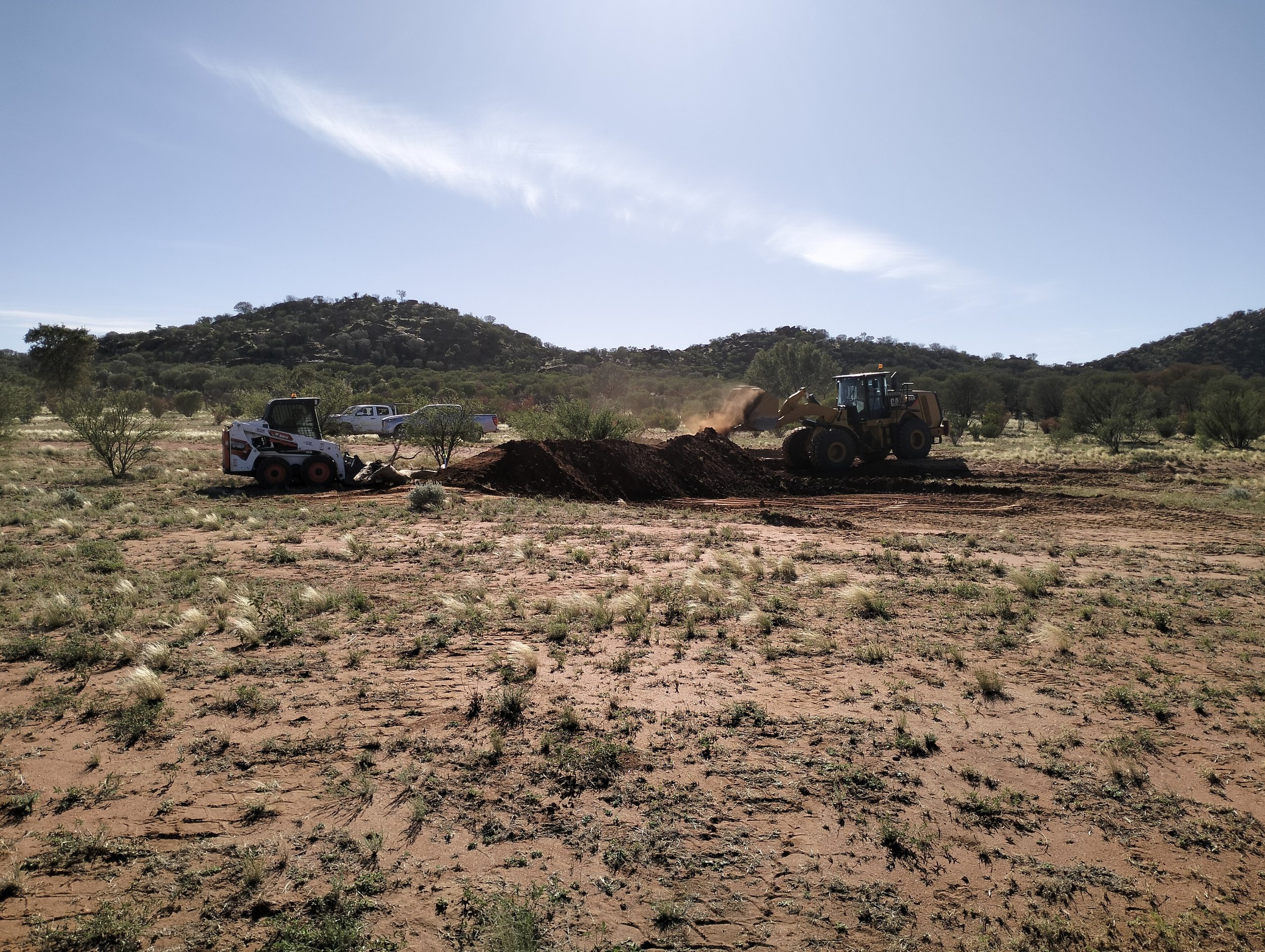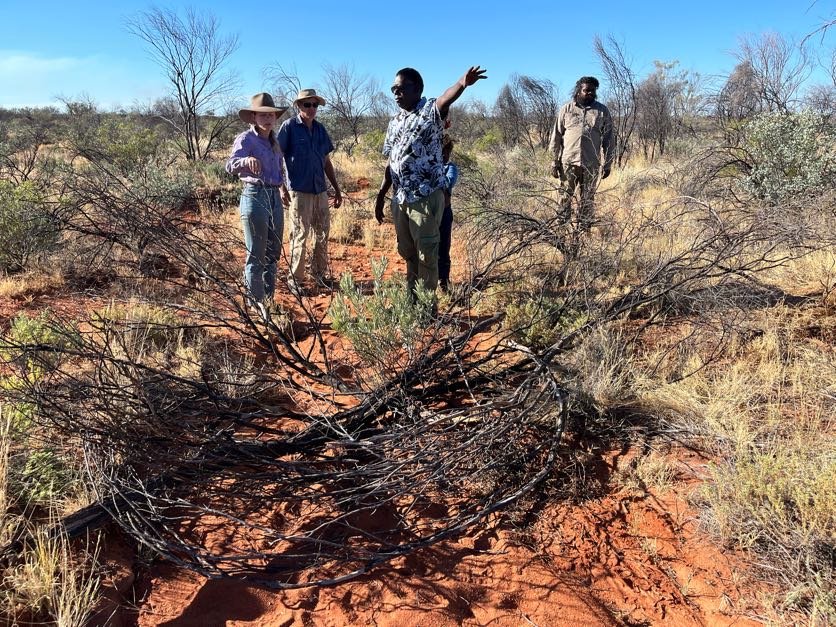Mulloon Institute Landscape Planners Erin and Lance set up survey equipment in the early morning sun at Glen Helen station.
As Mulloon Consulting’s Lance Mudgway, Erin Healy and Shane Hunter arrived in Alice Springs and drove out to Glen Helen Station, the first of four stations that make up the Centralian Landscape Rehydration demonstration project, they were greeted by a vibrant green landscape teeming with life. It is amazing how much difference a decent amount of rainfall makes in this usually dry bioregion. Our team last undertook a field trip to implement works on the Centralian project in November 2022 when the landscape was well and truly dehydrated with bare, exposed soil and large, scalded areas typical of the arid rangelands of Central Australia. After extensive rainfall earlier this year, the obvious changes highlight the imperative for the Mulloon Institute’s advocacy of landscape rehydration and repairing the terrestrial water cycle. By capturing and storing water in the soil during the good times, we can build the resilience of pastures and natural ecosystems in preparation for inevitable periods of drought.
Working across Glen Helen, Narwietooma and Aileron stations as well as the Ahakeye Aboriginal Land Trust (formerly known as Ti Tree station), Mulloon Consulting’s team partnered with the Northern Western Australia and Northern Territory Innovation Hub (NWANT) and Tierra Australia to survey and construct Landscape Rehydration structures and other interventions. These works will slow and spread the flow of water to increase soil infiltration and reduce erosion at each of the demonstration sites. This project scales proven landscape rehydration and sustainable management practices to restore the landscape function of a catchment within each of the four stations. These sites will be used to trial, demonstrate and widely communicate the benefits of landscape rehydration and sustainable management practices to pastoral landholders in the NT and WA.
Working in remote locations certainly provides some unique challenges, particularly around accessing the right machinery, and avoiding breakdowns. To successfully complete their work, the team had to think on their feet to work through inevitable issues such as flat tyres and the unavailability of preferred machinery. These challenges emphasised the importance of understanding site context, adaptive management and working with the limited resources that are available. It was also a wonderful opportunity to involve station managers and Traditional Custodians in the survey and construction process. The field trip was an amazing experience and the Mulloon Consulting team can’t wait to get back there to monitor the results of their hard work after the next major rainfall event, and further educate land managers about landscape rehydration.
The Centralian project is funded by the Australian Government’s Future Drought Fund – Drought Resilient Soils and Landscapes Program through Charles Darwin University.
Lance and Erin work with James and Clayton, Aboriginal Rangers from the Central Land Council to construct a simple brush weir.




